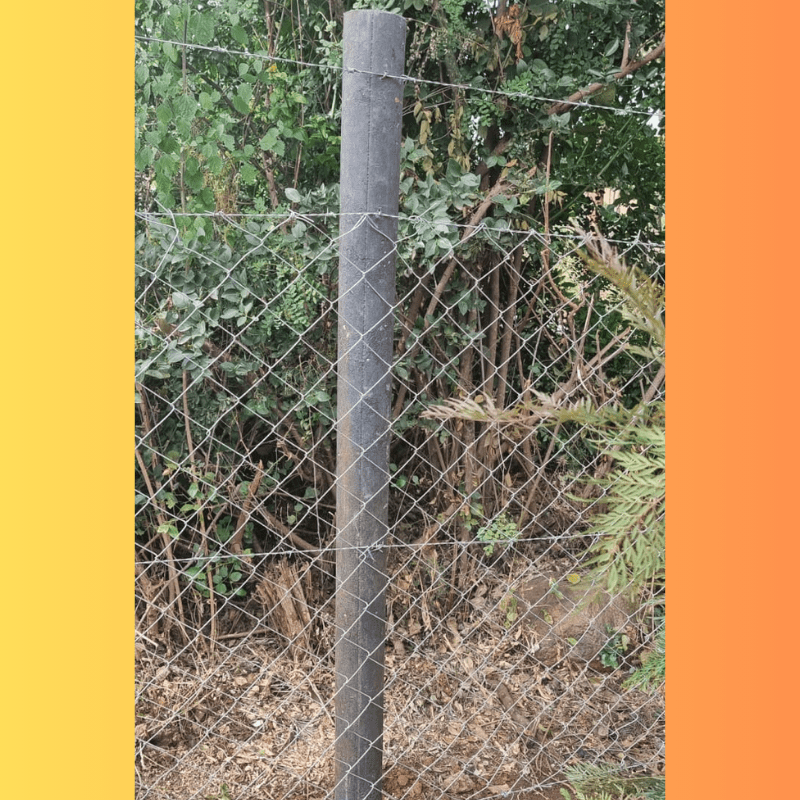Kenya’s farmers face constant challenges: livestock trespass, crop raiding wildlife, and rising costs of traditional fencing materials. Wooden posts rot or get eaten by termites, concrete posts are heavy and brittle, and steel posts may rust over time. A new solution has emerged—fences made using recycled plastic posts.
These posts, manufactured from recycled plastics such as HDPE and PP, are eco-friendly, rot-proof, termite-resistant, and long-lasting. They’re already being adopted by progressive farmers in counties like Kajiado, Laikipia, Nanyuki, and Rift Valley, where durability and sustainability are key.
At Electric Fences Kenya Ltd, we supply and install solar-powered and mains-powered electric fencing systems with recycled plastic posts to secure farms, homes, and ranches.
Call/Text/WhatsApp: +254 722708034 / 0720 456534
Visit: www.electricfences.co.ke | www.electricfenceskenya.com | www.electricfences.africa
Benefits of Recycled Plastic Fence Posts in Kenya
-
Durability – Resistant to rot, rust, termites, and moisture. Can last 30–40 years.
-
Eco-Friendly – Manufactured from recycled plastics, reducing waste in the environment.
-
Low Maintenance – No need for chemical treatment or painting.
-
Strong and Flexible – Can withstand livestock pressure without cracking like concrete.
-
Cost-Effective – Longer lifespan reduces replacement costs.
-
Sustainable Choice – Supports Kenya’s push towards green energy and circular economy.
In Kajiado County, herders have adopted plastic posts to protect grazing fields. Unlike wooden posts, which were being replaced every 2–3 years, the plastic posts have now lasted over a decade with minimal maintenance.
Case Study 1: Dairy Farmers in Laikipia Using Plastic Posts for Cattle Enclosures
Laikipia’s dairy farmers are among the first adopters of recycled plastic fencing. One cooperative group fenced a 50-acre dairy farm with plastic posts paired with a Stafix X6i energizer.
-
Setup: 7-line wire system, plastic posts every 12m.
-
Outcome: Reduced cattle escapes and predator attacks.
-
Testimony:
“We were replacing wooden posts almost every rainy season. With plastic posts, the fence is stronger, and the cost of maintenance has dropped drastically.”
Call/Text/WhatsApp: +254 722708034 / 0720 456534
Visit: www.electricfences.co.ke | www.electricfenceskenya.com | www.electricfences.africa
Installation Blueprint for Plastic Post Electric Fences
-
Site Preparation – Clear vegetation along fence lines.
-
Post Spacing – Place recycled plastic posts 10–12m apart.
-
Strainer Posts – Use reinforced plastic or steel at corners and gates.
-
Wire Setup – Install high-tensile wires with UV-resistant insulators.
-
Energizer Connection – Pair with solar/mains-powered energizers depending on farm size.
-
Earthing – Proper grounding is essential for shock effectiveness.
This system ensures strong performance in Kenya’s variable climates.
Case Study 2: Narok Wheat Farmers Protecting Fields from Wildlife
In Narok, wheat farmers face constant crop raiding from zebras and antelopes. A group of farmers pooled funds to build a 15km plastic-post electric fence powered by JVA SV10 energizers.
-
Design: 9-wire configuration with solar-powered energizers.
-
Result: Crop losses reduced by 80% during the first season.
-
Testimony:
“The plastic posts have survived both the sun and heavy rains. They’re stronger than we expected and keep wildlife at bay.”
Energizer Pairing Guide for Plastic Post Fences
| Farm Size | Energizer | Brand Option | Power Source |
|---|---|---|---|
| 1–5 acres | Stafix X3 / Nemtek Druid 15 | Stafix, Nemtek | Solar/Mains |
| 5–20 acres | JVA SV5 or Stafix X6i | JVA, Stafix | Solar |
| 20–50 acres | Nemtek Druid 28 or JVA SV10 | Nemtek, JVA | Solar + Backup |
| 50+ acres | Stafix 12000W or JVA MB16 | Stafix, JVA | Mains/Solar |
Case Study 3: Horticulture Farms in Nanyuki
Nanyuki’s horticulture farmers growing vegetables for export have also embraced recycled plastic posts. With water-intensive farms, wooden posts rotted quickly, leading to constant replacements.
Now, with plastic posts and Nemtek Druid energizers, farmers enjoy consistent fencing that withstands moisture.
“Our biggest challenge was wooden posts collapsing during irrigation. The plastic posts are waterproof, and now we focus on production rather than repairs,” said one farm manager.
Call/Text/WhatsApp: +254 722708034 / 0720 456534
Visit: www.electricfences.co.ke | www.electricfenceskenya.com | www.electricfences.africa
Cost of Installing Recycled Plastic Post Electric Fences in Kenya
The cost varies depending on wire type, energizer size, and terrain.
-
Recycled plastic posts: Ksh 800–1,500 each.
-
High-tensile wire: Ksh 5,000–6,500 per roll.
-
Energizers: From Ksh 25,000 for small farms to Ksh 200,000 for large ranches.
-
Installation: Ksh 100,000–1.5M depending on scale.
On average, 1km of recycled plastic fencing costs Ksh 250,000–400,000, which is cheaper long-term compared to wooden posts that need frequent replacement.
Maintenance Tips for Plastic Post Fences
-
Inspect wires monthly for sagging.
-
Keep vegetation trimmed to avoid short-circuiting.
-
Test fence voltage weekly with a digital fence tester.
-
Check energizer and earthing rods periodically.
FAQs
Q1: Are recycled plastic posts safe for livestock?
Yes, they’re non-toxic and safe for both livestock and wildlife.
Q2: How long do plastic posts last?
They can last 30–40 years with minimal maintenance.
Q3: Can plastic posts support heavy wires?
Yes, they’re strong and flexible enough for high-tensile wires.
Q4: Are they suitable for all regions in Kenya?
Yes, from humid Nanyuki to arid Kajiado, plastic posts perform well.
Q5: How do they compare to concrete posts?
They’re lighter, longer-lasting, and easier to install.
Q6: Do they cost more than wooden posts?
Initially yes, but they save money long-term due to durability.
Conclusion: Why Farmers Should Adopt Plastic Post Fences
Recycled plastic posts are transforming farm security in Kenya. They’re sustainable, durable, and resistant to the challenges that limit wooden or concrete posts. Paired with the right energizer, they create a powerful barrier for crops and livestock.
At Electric Fences Kenya Ltd, we supply and install top-quality recycled plastic-post fences for farmers across Kenya. Whether you’re a wheat farmer in Narok, a dairy farmer in Laikipia, or a horticultural grower in Nanyuki, we can help you secure your farm with eco-friendly fencing.
Call/Text/WhatsApp: +254 722708034 / 0720 456534
Visit: www.electricfences.co.ke | www.electricfenceskenya.com | www.electricfences.africa

